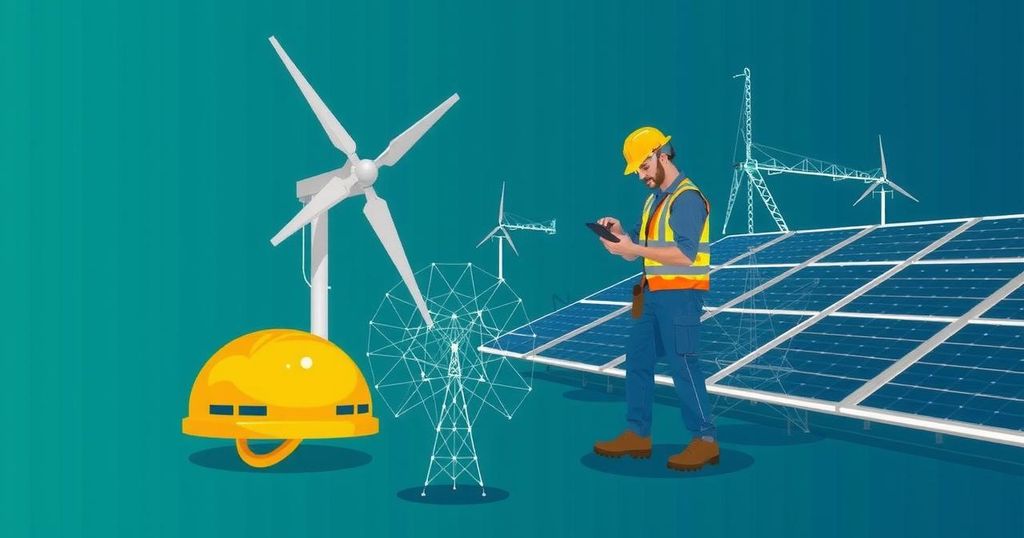The Unstoppable Clean Energy Revolution in America

The article discusses the ongoing clean energy revolution in the United States, spearheaded by legislation like the Inflation Reduction Act, which invests heavily in renewable energy sectors. Despite opposition from some political figures, the benefits of the transition are visible, particularly in job creation, predominantly in Republican states. The article highlights California’s proactive stance on green energy, contrasting it with former President Trump’s views on climate change, ultimately reinforcing the idea that a shift toward renewable energy is both necessary and beneficial.
The clean energy revolution is firmly underway in the United States, signified by significant legislative support such as the Inflation Reduction Act, which allocates $400 billion to renewable energy sectors, including solar and electric vehicles. This initiative aims to mitigate carbon emissions—an urgent response to an escalating climate crisis. Despite the reluctance of some political figures to acknowledge climate change, the positive impact of clean energy jobs is undeniable, with 60% of new employment opportunities emerging in traditionally Republican states, indicating a shift in economic dynamics that transcends partisan divides.
Criticism from former President Donald Trump, who labels climate change as a “hoax,“ contrasts sharply with the actions of state leaders like California Governor Gavin Newsom, who actively promotes green energy initiatives and intends to maintain electric vehicle tax incentives, regardless of federal intentions. Newsom recognizes the robust market for electric vehicles in California, emphasizing the necessity for diverse competitors in the sector, potentially diminishing Tesla’s market grip. This fiscal strategy exemplifies how state-level intervention can effectively address environmental issues at lofty economic scales, particularly as California stands as the fifth-largest economy globally.
While discussions persist regarding oil drilling in environmentally sensitive areas like the Arctic National Wildlife Refuge, experts suggest that the economic feasibility of such ventures is in question. Current oil prices and market conditions further complicate the likelihood of successful bids from major oil companies. Overall, President Biden’s administration has facilitated an estimated $1 trillion in funding for green energy development, ensuring that the transition toward renewable energy gains momentum, regardless of opposition. The message is clear: the green energy transition in America is unavoidable, promising an abundance of opportunities for those willing to embrace it as others step back.
The context of the article revolves around the significant shift toward renewable energy in the United States, catalyzed by legislation aimed at fighting climate change. The Inflation Reduction Act represents a substantial investment in clean energy technologies, reflecting a broader commitment to diminishing carbon emissions and curbing the adverse impacts of climate change. This transition is not merely an environmental necessity but also an economic opportunity that presents new job prospects across various states, including those traditionally resistant to such changes. Furthermore, political dynamics influence how these changes are received and implemented at both state and federal levels, revealing a complex landscape of innovation, resistance, and adaptation to climate realities.
In conclusion, the clean energy revolution in the United States is not only inevitable but is also creating meaningful employment opportunities, especially in conservative regions. The positive economic implications challenge the narratives of opposition figures and underscore the transformative potential of renewable energy investments. As states like California take proactive measures to expand green energy markets, it becomes evident that leadership against climate change is emerging at multiple levels. Thus, the continued push for clean energy signifies a critical pivot towards a sustainable and economically viable future.
Original Source: www.creators.com





